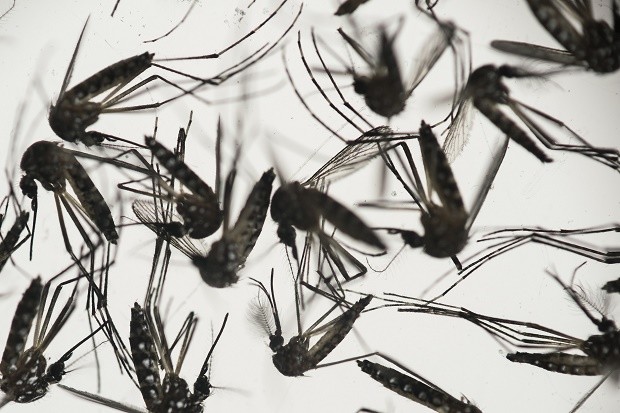Puerto Rico sees rise in Zika cases, paralyzing condition

In this Jan. 27, 2016 file photo, samples of Aedes aegypti mosquitoes, responsible for transmitting dengue and Zika, sit in a petri dish at the Fiocruz Institute in Recife, Pernambuco state, Brazil. On Friday Friday, March 11, 2016, Puerto Rico’s Health Department reported 201 confirmed Zika cases amid warnings the U.S. territory could face an epidemic of the mosquito-borne virus. Officials said Friday that 21 of those cases involve pregnant women. AP FILE PHOTO
SAN JUAN, Puerto Rico — Puerto Rico says more than 100 new cases of the mosquito-borne Zika virus have been reported in the past week.
Health authorities said Monday that the US territory now has 350 cases, 40 of which involve pregnant women. Experts think Zika infections may be linked to microcephaly, which causes babies to have unusually small heads and brain damage.
The paralyzing condition known as Guillain-Barre syndrome also is being looked for possible links to Zika, and Puerto Rican officials said two news cases of that were reported, for a total of three cases. Six people have been hospitalized.
READ: New report links Zika to paralyzing disease
The US Centers for Disease Control and Prevention has requested at least $225 million in federal funds to fight Zika in Puerto Rico.
Article continues after this advertisementREAD: Officials: Zika-infected couples should postpone pregnancy